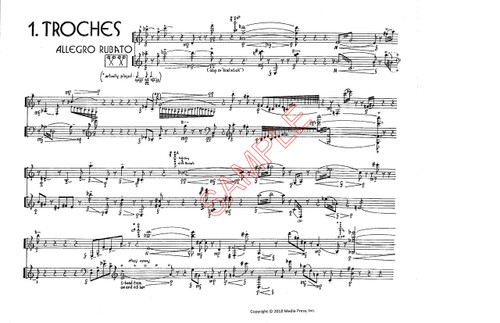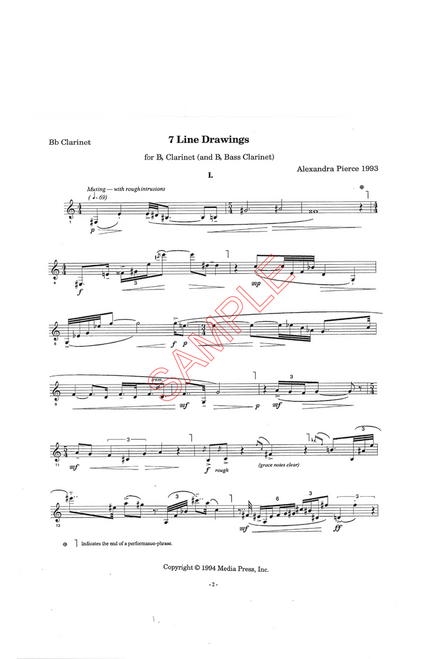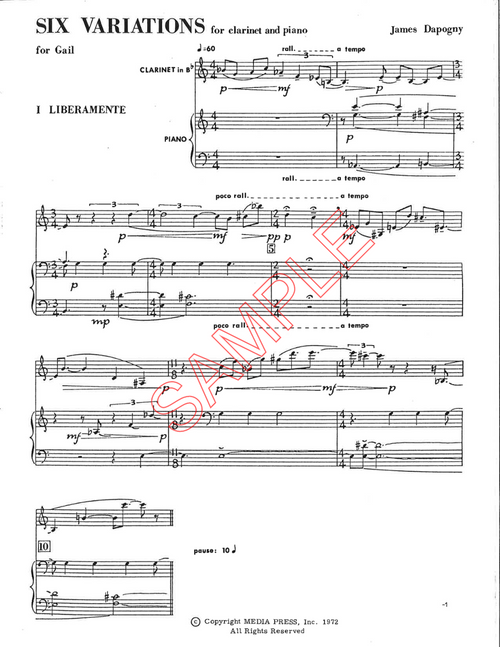Variation Duos, for Bb clarinet and marimba includes two scores.
Want it now? Click here to purchase a digital copy of this product.
Review from Percussive Notes (2021):
Variation Duos
Frank McCarty
Originally written in 1979 and revised in 1981, “Variation Duos” is a duet for clarinet and marimba that is broken into six unique movements. The piece was composed for and premiered by Andrea and Bob Rosen of the Uwharrie Duo. The variations within the overall structure are tied together using a pitch-class set; although the composer remarks in the program notes that the piece is not a serial work, but rather, an exploration of timbres between the two instruments.
Although connected with similar material, each movement stands by itself in form and function. The first movement presents the pitch class along with various timbres that will be explored and developed later. The second movement is characterized by sound masses and masks, as timbres shift from one idea to another in each instrument. The third movement serves as a grounding pillar to the work—an accessible canon—as each instrument repeats itself in evolving polyrhythms throughout. The following movement is the most abstract, using graphic notation while also trying to evoke a surreal intermezzo in the style of Bartok’s night music. The penultimate movement is a quasi-improvised march for the marimba with an accompanying clarinetist, culminating in the final movement, which serves as a recapitulation of each movement. A successful performance of the entire work will give this last movement a kaleidoscopic effect.
With a variety of extended techniques required for both instruments, this 17-minute duet requires virtuosity on numerous fronts. Both performers need technical proficiency, but specific to percussion, the marimbist must perform one-handed rolls often, handle various quick-moving melodic lines, and interpret frequent guided improvisations within the context of a chamber work. Recommended for a senior or graduate chamber recital, “Variation Duos” would certainly provide a change of pace against the contemporary repertoire for woodwind and percussion duets.
—Matthew Geiger
Demo:







